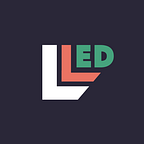Identifying the Most Pressing Problems of Kansas City Schools:
A Letter from LEANLAB CEO, Katie Boody
I grew up in a suburb of Kansas City, raised by a Puerto Rican transplant and a fourth generation Kansas Citian — both entrepreneurial community organizers committed enough to spend the last 35 years fighting for social justice in Kansas City’s most under-resourced neighborhoods, yet privileged enough to move to a nearby suburb with a high performing public school district. This awareness of such dualities and disparities in our city provided a consistent backdrop to my upbringing. Such inequities were constant conversation topics at the dinner table of my youth; and drilled into me from a young age was an unnerving awareness of how these disparities revealed themselves systemically — in healthcare, housing, and education.
As a lover of learning from an early age, I understood the freedom associated with access to knowledge but I couldn’t imagine a world where other children — many also of latin parents from distant places — couldn’t access a quality education. It was inconceivable to me that such a world existed merely minutes from my house.
Ten years ago, I returned to Kansas City to teach in our city’s schools. I taught in a district school that closed and then helped a charter school open. I’ve watched our district lose Superintendents, accreditation, and enrollment, only to rebuild its board of directors, attract a dynamic new leader and reopen schools. Over this last decade, it’s important to note, on the aggregate, our schools have improved. And while our student achievement numbers do not yet reflect all of the progress that needs to be made, I would be remiss to not acknowledge the incredible gains in public perception, stability of leadership, and general hopefulness that has begun surrounding our city’s schools — both charter and district. This positivity, this bend of the arc, keeps me committed to this work and refuels me year after year.
When I initially started LEANLAB Education, it was in response to a different, but related, problem. I felt that even when I was making solid gains with the students in my middle school math classroom, I was never making them quickly and meaningfully enough. I was never able to confidently look into each of my students’ eyes and promise them a fair shot at the future.
Instead, I was teaching in under-resourced classrooms, using century-old teaching models to address astonishing gaps in a learning, in a world evolving at an unprecedented rate. I became convinced that we would need to radically reevaluate and even reinvent our approach to school if my students were ever going to have a chance in this newly emerging world. It would require the development of a new, inclusive process that would allow for the creation of new services, resources, pedagogies, and tools that could better prepare our students of today for the realities of tomorrow. And this process would require that we listen intently to those closest to the issues of education — parents, students, and teachers — and collaborate with them throughout the entire innovation process, from concept through refinement and on to the launch of initiatives into schools.
Since we began our journey, we’ve trained over 400 education entrepreneurs, convened thousands more and launched 22 new ventures that have impacted 8,000 of our region’s children and more than 1,000,000 nationwide. Last year, we launched an annual listening tour to better understand the needs of our school community. The following paper reveals our newest findings from our community. Their voices now act as the guide and foundation of our work.
New to 2018, we will be partnering with select school sites to create living laboratories where innovators will collaboratively design innovations alongside students, teachers, and administrators. However, while I am sincerely proud of this progress, this progress is not enough.
The current rate at which students are improving their learning outcomes in Kansas City is insufficient if we want to ensure that all students in our classrooms today are able to receive a quality education. According to the Missouri Comprehensive Data System (MCDS), in the 2015–2016 school year, 35% students attending traditional public and public charter schools within the boundaries of Kansas City Public School were proficient or advanced in ELA and math combined. Since 2013, this number has increased at a rate of only 1% per year. In comparison, the Missouri state average of students proficient or advanced in English Language Arts is 55%, revealing a 20% gap. At this rate, it would take at least twenty years to close that gap in student outcomes between our Kansas City schools and the state average. This means that the majority students sitting in our city’s classrooms today will not experience a high quality education by the time they graduate.
Too many classrooms and teachers face the same frustrations I faced five years ago.
We still have much work left to do. While I write this with urgency, I also write this with hope. We can leverage the progress that has been made and harness it as momentum. This momentum can propel us into a new, unprecedented future where all children have access to the future they deserve.
To that future,
Katie Boody
CEO & Co-founder, LEANLAB Education
